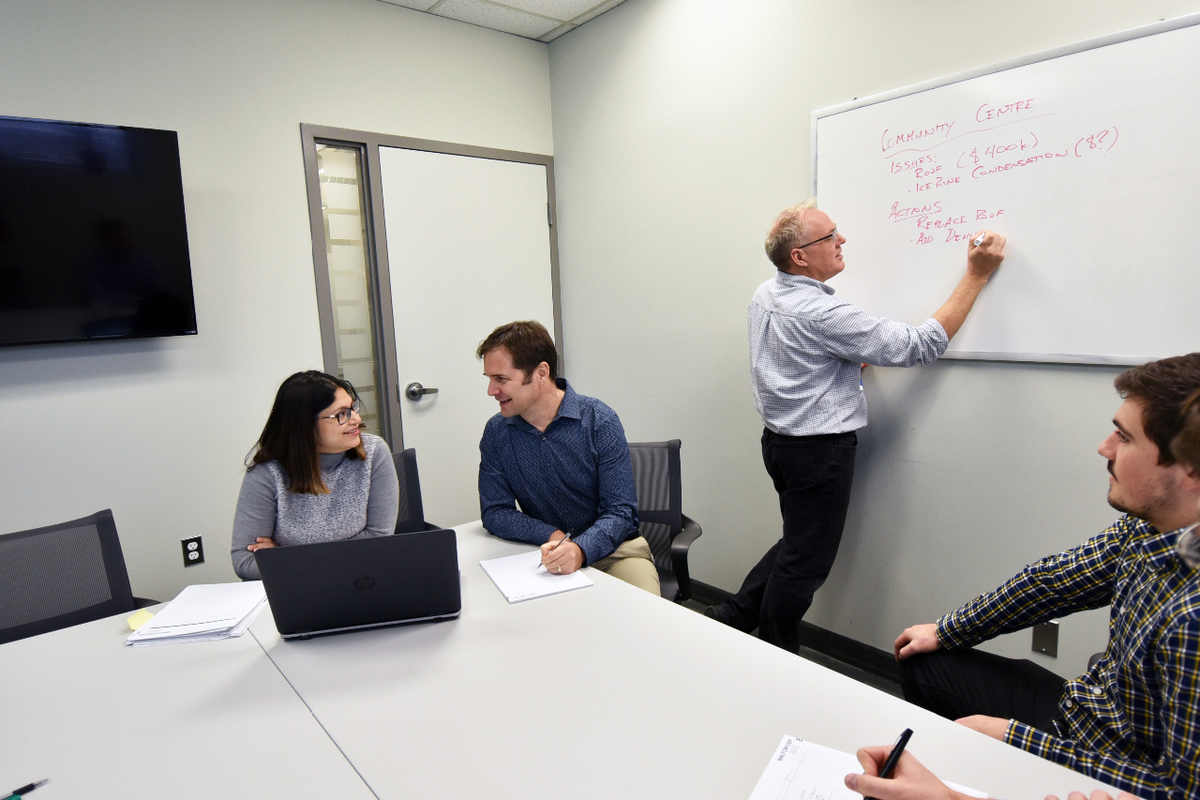
A career in sustainability can take many forms. Some work in environmental law or advocacy, and others focus on research and development for new technologies. For resident sustainability expert Marlen Aleman, her niche is Asset and Facilities Management (AFM).
Marlen has spent many years serving as a sustainability consultant, helping thousands of square feet of real estate across Ontario earn varying degrees of sustainability certification. A LEED Green Associate and certified Facilities Management Professional, Marlen combines her knowledge of building operations and building best practices to help clients achieve their sustainability goals.
“Everything we do in AFM has to do with sustainability,” said Marlen. “We are helping to maximize building performance and lifecycle, so rather than decommissioning a building and start a new construction, we help our clients in the planning to keep their assets in good condition and up to standards. We can also help with operational strategies that impact energy consumption, but also the productivity and wellbeing of the occupants. It’s creating a sustainable environment and I am very proud of that.”
Marlen and her team work closely with clients to help them map out plans to increase their sustainable practices and earn recognition for the strides they have made. Often times, this takes the form of guiding partners through programs like Buildings Owners and Managers Association (BOMA), which has a comprehensive rating system that helps owners of existing buildings achieve certification and recognition for their practices on an operational level. This means taking a critical look at energy, water, air, comfort, health and wellness, custodial practices, purchasing, waste, site, and stakeholder engagement.
“The early integration of sustainability considerations is key for the success of any project. Our work helps our clients make informed decisions that have a positive impact in their bottom line, the environment and the well being of building occupants,” said Marlen.
Whether you have an established building, or are exploring a new build, there are numerous programs available to help stimulate greener practices and design in business, including LEED, WELL, BOMA, and NetZero. While more and more businesses are striving to create positive change in their buildings and work culture, many are still working up the courage to take the next step.
“One of the biggest misconceptions about sustainability is that it is expensive,” said Marlen. In fact, it is more accessible than you might think. “Some very important green strategies and activities cost very little,” she explained. The best place to start is with the people in your organization, and this approach is virtually free. With the implementation of awareness programs, tenants can start making changes to their habits that greatly reduce their environmental impact. “Green building systems are most effective if building occupants know how they work. That’s where every sustainability approach should begin.”
Outside of her role as an Asset Management Specialist, Marlen actively participates in conversations on green living. She is a key member of WalterFedy’s Sustainable Advisory Committee, which was developed to facilitate ongoing change within the organization to reduce environmental impact. She also volunteers with Women in Renewable Energy and provides mentorship to young professionals looking to jumpstart their career in green industry. Her motivation is simple: “The planet is the only home we have. I want my son to grow up in a healthy environment and enjoy nature. Sustainability is a way of living. It isn’t just a standalone project. It is a wide cultural change that needs to happen and can happen.”

